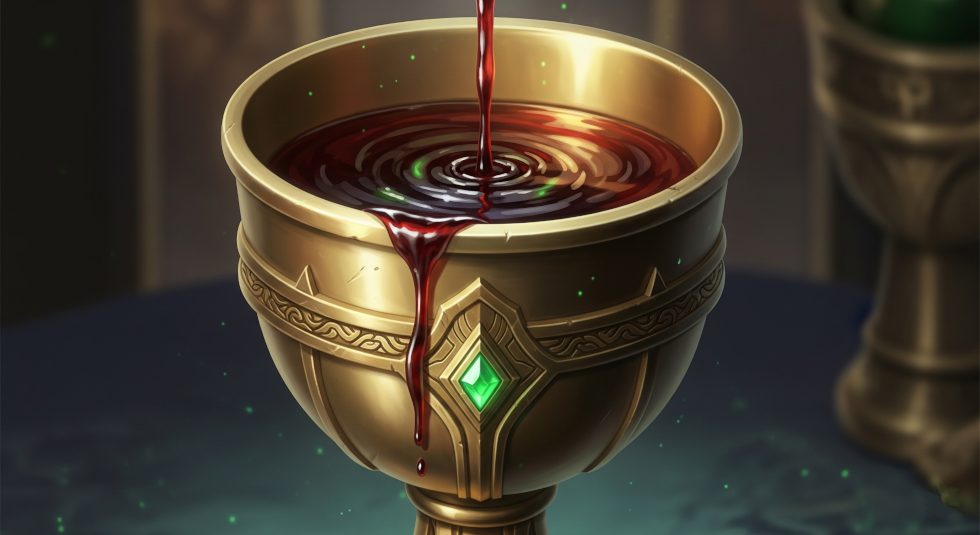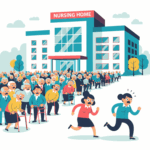Is there anyone who hasn’t yet read about the worsening Loneliness Epidemic of the early twenty-first century? The news is rife with tales of how we, as a society, are plummeting into a deepening chasm of isolation and resulting depression. They aren’t wrong; I have studied and written about it, too, along with the contributing factors of AI. As our combined curiosity, dread and intellectual laziness gain traction, what seemed like a panacea for our loneliness at the beginning of the pandemic is now seeming to be a bit of a poisoned chalice. Like Macbeth, we may have to reckon with the effects of what we wrought, and it may do us more harm in the end than the harm we sought to avoid in the first place.
That being said, I thought I was safe from loneliness, personally speaking: I write about this subject in depth and have studied the effects and how best to avoid it. I was feeling pretty good about myself, the state of my family and connections in general until my world came crashing to a halt last spring when my mother came to live with us. Suddenly, the smugness got knocked out of me and my confidence took a bit of a hit. It turns out that loneliness can take a number of forms, only one of which is physical isolation. While I had written about this in the past, it was a different thing to experience in person. I started living that truth in real time, and the loneliness of being not understood was a sword that cut deep. Every day, all day. It was (is) intolerable, and I suffered. Oh, how I suffered. And I suddenly wasn’t just writing words on a page about other people’s loneliness, I was writing about my own. And that tends to change a person.
I tried finding common ground with my mom. I elected to make small talk. I experimented with sitting in silence. I discussed neutral topics, then our shared history. We watched TV together, then the birds, then the clouds. I read books about how to connect. I read my own articles. Nothing seemed to work; all I got back in response were vague answers, but nothing more. Was she angry or resentful? Was she nursing a grudge? I was puzzled. Was I too close to the situation to see it for what it was? It didn’t matter what method I used to engage my mom, the only answer on her part seemed a slightly disinterested shrug and then back to her phone.
Now, my mom has no degree whatsoever of dementia or impairment. That’s important to this story. What seems relevant to discuss is that after she was widowed she went through an intense grief response, and her way of coping was to bury herself in the games on her cell phone. While I did notice her lack of emotional response in the past, it wasn’t until I actually lived with her that I began to see how … stunted she is. She has cultivated a life in which she prefers to scan her phone, pressing buttons and staring at colors, receiving a mild, ongoing dopamine hit all day, every day. No movie plot can captivate and no sunset is as vibrant as 1080p HD with a 120hz refresh rate. No conversation is as immediately interesting and no pet is as cute as the altered AI creations that pop up with their big eyes and adoring expressions. Real life is boring by comparison.
My mom is lonely. She is in hospice at the end of her life. She has lost her home, her husband, her possessions and most of her friendships. She is bearing the burden of deep grief, and she is on the precipice of a disease process that is both physically disabling and terrifying to submit to as death approaches. She has all the emotions that you might imagine would come with these situation, but no faith to sustain her. What she does have is the deep love of family, a few cherished friends and a wonderful hospice community and therapists to support her through. Yet she is frozen into a rictus, staring at her phone, pressing candies and breaking columns to get an imaginary reward. In those few moments between wakefulness and sleep, she is a ball of anxiety and she doesn’t have the words or the will to express herself. Did she ever? I think so, but it has been so long that I can barely remember anymore. You might wonder why anyone would want to “wake up” and face their reality if it is so bleak. Well, I counter that reality wouldn’t be so bleak if we did wake up. We have friends here, among us, ready to speak if we just try it. There are sunsets and sunrises and stars above our heads, if we only look up to see them. We are lonely, yes, but we are creating our own loneliness. It hurts to bear our wounds, but by ignoring them they don’t go away, they only fester and wait to haunt us while we sleep. The answer isn’t turning to AI and hearing the echo chamber of our own opinions rippling back at us, or hitting another gem on the screen, it’s being brave enough to talk to each other, even when we might not like what we feel or what we hear. We need each other. If we can’t accept that, then we might as well drain the poisoned chalice right now because our epidemic will only worsen as AI understands how to engage us better than we have a will to fight for our own freedom from it.
Knowing this, are you still so eager to use AI everywhere you can? Let me know your thoughts in the comments.



